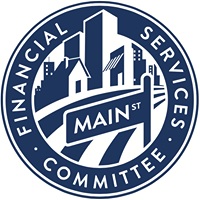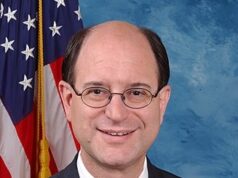Chairman Hensarling Delivers Opening Statement, Unveils Bipartisan GSE Reform Bill
Washington, DC – (RealEstateRama) — Financial Services Committee Chairman Jeb Hensarling (R-TX) delivered the following opening statement at today’s full committee hearing on the 10th anniversary of the federal government’s takeover of Fannie Mae and Freddie Mac, the failed government-sponsored housing enterprises (GSEs). During his remarks, Hensarling detailed his bipartisan plan to reform our broken housing finance system.

September 6th, 2008 is a day that will live on in economic infamy. For today marks a not-so-happy anniversary of one of the most frustrating and costly moments in recent financial history: namely, the 10 year anniversary of the federal takeover of the failed housing government sponsored enterprises, Fannie Mae and Freddie Mac (the GSEs).
The GSEs’ anti-competitive government charters and ever-increasing “affordable housing” mandates created a toxic mess of systemic risk. Their collapse directly led to the second worst financial crisis in our history, causing more than $190 billion of taxpayer bailouts and forcing them into a government-run conservatorship.
Embarrassingly, ten years later, the GSEs remain in conservatorship, very much alive and very much unreformed as they quietly return to their pre-crisis market dominance. That’s bad news for competition, innovation, and, most of all, taxpayers, since the Congressional Budget Office has said their $5.1 trillion of mortgage obligations are “effectively guaranteed by the federal government.”
Meanwhile, as several of our witnesses will testify, systemic risk is building yet again. The cost and risk of continuing to do nothing is rising and rising at an alarming rate. Reform, while critical, has proven elusive. For almost 20 years, I along with a handful of reformers like Congressman Ed Royce have labored in vain to replace the GSEs’ government-sanctioned monopoly with a new system based on competitive private capital, innovation, consumer choice, and market discipline.
We passed the PATH Act in the 113th Congress to do just that. I am reintroducing the PATH Act this week, and for no other reason it is the right thing to do and it will let me sleep better at night. Regrettably, its chances for passage remain slim. So as an alternative, I’ve decided to partner with Mr. Delaney on the other side of the aisle to propose a bipartisan compromise housing reform plan that preserves the government guarantee in the secondary mortgage market.
In the time I have remaining in Congress, this is the plan I will pursue.
Our discussion draft, which we will unveil later today, will repeal the GSEs’ charters, permanently ending their monopoly, and transition to a system that allows qualified mortgages backed by an approved private credit enhancer with regulated, diversified capital resources to access the explicit, full government securitization guarantee provided by Ginnie Mae. I believe the plan will preserve much of what is demanded in the current system: liquidity, the TBA market, and the 30-year pre-payable fixed mortgage. And it will do so while dispersing risk and leveling the playing field for all entrants into mortgage finance. Additional details on our proposal will be released later today.
While by no means perfect, we offer this proposal as a grand bargain on how to move past an increasingly dangerous status quo: codify an explicit government MBS guarantee into law, coupled with an accountable and effective affordability program in exchange for placing the taxpayer in a catastrophic loss position only diffusing the credit risk beyond two GSEs, and creating market competition.
If the political will to enact such reform stalls in this Congress or the next, the Administration can and should effectuate change. The President will appoint a new Federal Housing Finance Agency Director in January. The Director has broad, unilateral power as conservator of Fannie and Freddie to dramatically reduce their size, scope, and function. If Congress fails to act by early next year, I call upon the new Director to institute these reforms administratively. The grand bargain I have described does not necessarily represent my preferred policy or optimal policy, but I believe it represents an achievable policy and a good faith effort at bipartisan compromise. A decade without GSE reform has once again put homeowners, taxpayers, and the economy at risk. The time to act is now. With apologies to the rolling stones, “you can’t always get what you want, but if you try some time, you just might find, you get what you need” to avert the next housing crisis.
















